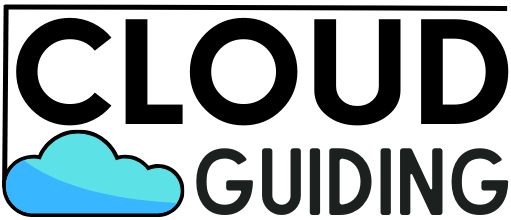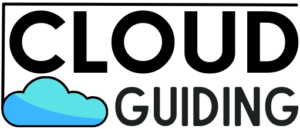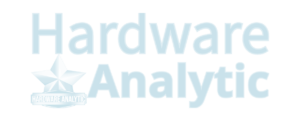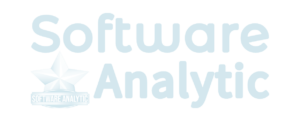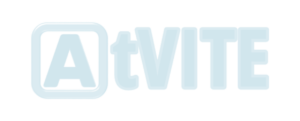Security as a Service is a cloud-based security model providing businesses with various security services. This article discusses the importance of SECaaS, its application, benefits, limitations, and market value.
What is Security as a Service (SECaaS)?
Security as a Service (SECaaS) is a model for delivering security services to businesses and organizations through the cloud. Instead of purchasing and managing their security infrastructure, companies can outsource their security needs to a third-party provider who will deliver security services on demand.
SECaaS typically retains different security services, such as threat detection and response, endpoint protection, identity and access management, and network security. Depending on the client’s needs, the provider may offer these services as a suite or individually. It offers a flexible and cost-effective way for businesses to manage their security needs and is becoming an increasingly popular option in today’s rapidly evolving threat landscape.
Why is SECaaS important?
Its providers typically have extensive experience and knowledge in delivering security services. Some importance is given below:
Cost-effectiveness
One of the primary advantages of SECaaS is that it allows businesses to outsource their security needs to a third-party provider, which can be a cost-effective option for building and maintaining an in-house security infrastructure. With SECaaS, businesses can pay for only the security services they need without additional hardware, software, and personnel costs.
Scalability
Another advantage of SECaaS is that it offers a scalable solution for businesses. As their security needs change and evolve, businesses can adjust their security services accordingly without needing additional hardware, software, or personnel. It allows businesses to remain agile and adaptable to security threats and challenges.
Access to advanced technologies
SECaaS providers can offer access to advanced security technologies, for instance, artificial intelligence and machine learning, that may not be feasible for businesses to implement on their own. These technologies can enhance threat detection and response capabilities, improving security solutions’ effectiveness.
Compliance
Numerous businesses are subject to regulatory compliance requirements related to security, such as HIPAA and GDPR. Its providers can help businesses meet these compliance requirements by delivering security solutions tailored to their specific needs and meet regulatory standards. It can help businesses to avoid costly fines and other penalties associated with non-compliance.
Application of Security as a Service
Some applications of SECaaS are given below:
Network Security
Network security is a paramount part of any organization’s security strategy. Its providers can offer network security services that help protect businesses against various cyber threats, including malware, phishing attacks, and unauthorized access. These services can include firewall management, intrusion detection and prevention, and VPN management.
Identity and Access Management (IAM)
Managing user identities and access privileges is complex and challenging for many organizations. Its providers can deliver IAM services that help businesses manage user identities and access privileges and ensure compliance with regulatory requirements. These services can include multi-factor authentication (MFA), single sign-on (SSO), and identity governance and administration (IGA).
Endpoint Protection
Endpoints, for instance, laptops, desktops, and mobile devices are increasingly targeted by cybercriminals. Its providers can deliver endpoint protection services that help businesses protect their endpoints against various threats, including malware, ransomware, and phishing attacks. These services can include anti-virus and anti-malware, encryption, and endpoint detection and response (EDR).
Cloud Security
Cloud computing has become essential to many organizations’ IT infrastructure but also introduces new security challenges. Its providers can offer cloud security services that help businesses protect their cloud assets and data against various threats, including unauthorized access, data breaches, and DDoS attacks. These services can include CASBs, CWPPs, and CSPM.
Benefits of Security as a Service
SECaaS providers can offer a wide range of security services, allowing businesses to choose the services that best meet their security needs. Some benefits are given below:
Reduced burden on internal IT resources
Managing security can be a complex and time-consuming task for internal IT teams. By outsourcing security needs to a SECaaS provider, businesses can reduce the burden on their internal IT resources, permitting them to focus on other important tasks. It can help businesses be more productive and efficient while maintaining high security.
Improved compliance
SECaaS providers can help businesses meet regulatory compliance requirements related to security, such as HIPAA, PCI DSS, and GDPR. By delivering security solutions that meet regulatory standards, businesses can ensure they meet their compliance obligations without needing additional personnel or resources.
Proactive threat detection and response
SECaaS providers can offer proactive threat detection and response capabilities, allowing businesses to identify and address security threats before they become major issues. It can minimize the impact of cyberattacks and prevent data breaches.
24/7 monitoring and support
Many SECaaS providers offer 24/7 monitoring and support, benefiting businesses with around-the-clock security monitoring and response capabilities. It can help ensure that businesses are always protected against security threats, even outside normal business hours.
Limitations of Security as a Service
Some limitations of Security as a Service are given below:
Dependency on Internet connectivity
SECaaS solutions require a stable and reliable internet connection to function properly. The security solution may become temporarily unavailable in internet outages or disruptions, leaving the business vulnerable to security threats. This dependency on internet connectivity may limit the availability and effectiveness of SECaaS solutions in certain scenarios.
Potential for data breaches
While SECaaS solutions are designed to provide robust security protection, they are not immune to data breaches. If a SECaaS provider experiences a security breach, it may compromise the security of its client’s data. This data breach risk can limit businesses’ trust and confidence in SECaaS solutions.
Limited customization options
Its providers typically offer a range of pre-configured security solutions that may not be fully customizable to the unique requirements of individual businesses. It can specify the capability of businesses to tailor their safety solutions to their specific needs, potentially leaving gaps in their overall security posture.
Lack of control
Outsourcing security to a SECaaS provider can limit businesses’ control over their security infrastructure. While businesses can choose which security services they use, they may not have full control over the configuration and management of those services. It can limit the capability of businesses to optimize their security solutions fully.
How are growing global security as a Service (SECaaS) markets?
Market Sand Markets said the global security as a Service (SECaaS) market value was USD 12.4 billion in 2021. It is expected to reach USD 23.8 billion by 2026, with the market growing at a compound annual growth rate (CAGR) of 13.8 % from 2021 to 2026.
Key Companies
Some prominent global Security as a Service (SECaaS) market players include Trend Micro, IBM, Microsoft, Zscaler, McAfee, Forcepoint, Sophos, Clearswift, Alert Logic, Cygilant, Barracuda, Networks, Panda, Security, Cisco, Fortinet, Radware, Norton LifeLock, Mindsight, Sentinel Technologies, Happiest Minds, Okta, Proofpoint, Qualys, Kaspersky Lab, Stratejm, and HackerOne.
Conclusion
Security as a Service is a cloud-based security model that allows businesses to outsource their security needs to a third-party provider. There are also limitations to SECaaS, such as the dependency on internet connectivity, potential for data breaches, limited customization options, lack of control, and potential for vendor lock-in. Despite these limitations, SECaaS can still be a valuable explanation for businesses looking to enhance their security posture while reducing costs and complexity. Adopting SECaaS should be based on carefully considering the business’s specific security needs and requirements and thoroughly evaluating the available SECaaS providers and their offerings.
